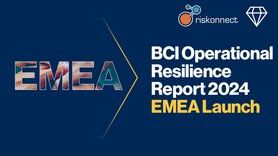Brexit starts...now!

The UK will leave the European Union (EU) at 23:00 (GMT) this evening. At this time, the UK will enter an 11-month transition period and, for the most part, very little will change until 1st January 2021. UK citizens will be able to travel in and out of the EU as normal, they will be free to drive in Europe with no additional licensing requirements, workers will still have freedom of movement and trade between the EU/UK will continue without any extra checks being carried out.
When the BCI published its Brexit Preparedness Report in November 2018, many organizations were delaying making plans for Brexit until they had certainty about what was going to happen. As the mooted leave date of 29th March 2019 approached, the organizations we spoke to, admitted they were delaying making concrete plans until they had certainty about what would happen.
Whilst we still can only speculate as to what the final Brexit deal will look like, organizations now at least have the certainty that the UK is leaving the EU – and they have 11 months to prepare for it.
During this time, the UK will still abide by EU laws and regulations, but will not have the opportunity to change rules or make new ones – or vote. For this reason, the UK is keen for the transition period to run without delay – despite Ursula von der Leyen, the new European Commission President, warning that the deadline is “very tight” and expecting the UK and the EU to not agree “every single aspect of our new partnership” by this time.
However, Business Continuity professionals can help organizations to be as prepared as possible once this transition period ends. Many organizations will reignite Brexit working groups to ensure they are prepared for the UK’s departure from the EU - and we advise that business continuity professionals be included within these groups. In the panic period up to 29 March 2019, many BCI members reported only being invited to these groups in the run-up to Brexit, as organizations feared they were not fully prepared.
This 11-month transition period is a good opportunity for business continuity and resilience professionals to seek a place at the table and raise the profile of their role by acting as the primary source of guidance on Brexit-related matters. If your organization has a group established, seek to get a place on the table. If your organization does not have these groups then this is your opportunity to inaugurate one, with business continuity and resilience at the heart of it.
So, as business continuity professionals, what steps can organizations take to help prepare over the next 11 months?
People and staff
- EU workers in UK organizations: Ensure any workers who began living in the UK before 31st December 2020 have status under the European settlement scheme in order to continue working. As an organization, ensure non-UK workers get the assurance and support they need in the run-up to 1st January 2021. Workers who arrive from the EU to work in the UK during the transition period can apply for EU Temporary Leave to Remain, providing temporary immigration status for 36 months. They will then need to qualify under the future immigration system.
- UK workers in EU organizations: UK staff working in the EU may require a visa after 1st January 2021. Be prepared to issue guidance if this affects your organization.
- Be prepared for a potential talent drought: The BCI Horizon Scan report indicates that one of organizations’ primary concerns over the next 12 months is a lack of talent; one of the drivers of which is from EU workers choosing to no longer work in the UK. If your business finds it becomes more difficult to employ workers from the EU, can you cover the potential higher salary demands of UK workers? Can you automate processes to negate the loss of human talent?
- Reassure staff, customers and visitors that they can travel as normal: Many people are confused about travel protocols for the coming year. If you have multiple visitors to your organization or hold events that attract EU citizens, provide reassurance early that they will be able to travel as normal to the UK. For travel post-January 2021, ensure you keep track of new rules that will affect movement of people.
Cross-border trade
- Ensure you are prepared to trade with the EU in the event that a trade agreement is not reached:In order to continue trading with the EU, British organizations will need to have an Economic Operator Registration and Identification (EORI) number to continue trading. VAT-registered companies will receive a number automatically, but you will need to apply for one if you are non-VAT registered.
- Become acquainted with duty relief schemes: There are certain schemes available to your business to offer duty relief, including a trusted trader scheme known as the Authorised Economic Operator (AEO). Local Chambers of Commerce will be able to provide more advice in this area.
- Are you prepared for delays? Whatever happens in terms of trade agreements, it seems likely that UK organizations will face extra paperwork and checks on goods at cross-channel borders.. We don’t yet know the extent of the delays – if indeed they materialise at all – but organizations must be prepared: stockpiling, altering current manufacturing practices, dropping just-in-time delivery models, and rearranging contracts that include penalties for late delivery are all practices being considered by BCI members.
Health and welfare
- The European Health Information Card (EHIC) will no longer be valid from 1st January 2021: Currently, UK nationals can access free healthcare in the EU with an EHIC. From January 2021alternative health insurance plans will need to be considered. Make sure you communicate alternative health insurance schemes and options to staff travelling to Europe. .
Money and insurance
- Insurance may be affected: The British Chambers of Commerce has warned that insurance policies may be affected by sudden changes to the business environment. If you are stockpiling, for example, it is worth checking whether your insurance policy covers it.
- Register for VAT abroad: For organizations that trade goods with the EU or hold stock in an EU country, they will need to register for VAT in that country (depending on the terms of the deal). The Government will be issuing further guidance on this over the course of 2020.
- Currency: There has been significant volatility in currency in the past two years, and this is expected to continue. Consider the currency you get paid in and approach your local chamber of commerce for advice. If the pound value plummets, exporters should consider using the opportunity to push for foreign sales.
Trademarks, IP and data protection
- Information for organizations around trademarks and IP is still vague: It currently isn’t clear whether trademarks registered in the EU will be applicable to the UK in the future. Ensure you contact your advisors, a specialist IP advisor or a trademark body to keep fully abreast of changes in this area if it affects you.
- Data protection: Although there would be no immediate changes, the legal framework governing transfer of personal data from organizations in the EU to those in the UK will change. If no deal can be agreed, the Information Commissioner’s Office has issued a six point checklist for this which can be downloaded here.
Supply Chain
One of the key areas where organizations will be looking to business continuity professionals isthe supply chain. According to the recent BCI Supply Chain Resilience Report, Brexit and its impacts on supply chains is one of the primary concerns for resilience professionals over the next few years. Some of the questions you should seek to determine the answer to in the early part of the transition period are:
- Have you mapped out your supply chain (up to tier three) to see which countries you depend on? For your critical suppliers, have you considered going beyond tier three?
- Have you got a contingency plan if there is an interruption within the supply chain? Not just from a materials perspective, but also from a transportation and logistics perspective?
- What would be the financial impact if there was a disruption in your supply chain?
- Are you under contract to deliver goods to customers within a specific time frame? Have you considered the impact on this if there were disruptions? Can you rewrite contracts with customers to mitigate against this?
- Have you considered the financial stability of your suppliers in a post-Brexit environment?
- Are your supply chain staff fully briefed on the potential risk of Brexit? Are risk management involved as much as they should be with the supply chain element of the business?
- Have you interrogated the business continuity plans of your critical suppliers?
In addition to all these points, there will be intricacies for different sectors and different company types. We would therefore advise you speak to your local authority, the Chamber of Commerce or industry associations to ensure you get the best guidance for your business.
Whatever the future holds for UK and EU organizations in 2021, there is now some degree of certainty. Whilst business continuity and resilience professionals cannot be expected to be experts on all the issues discussed, they can certainly help their organizations and guide them through post-Brexit continuity issues.
This brings a side benefit: for those who seek to increase the overall resilience of their organization and break down silos between departments, a Brexit-working group can be a great opportunity to do it.
The BCI will seek to provide updates on any pertinent issues relating to Brexit and business continuity throughout the transition period.








































